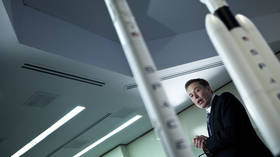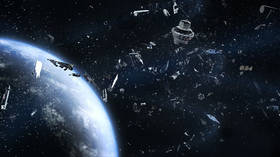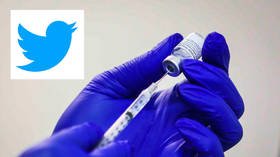Elon Musk’s rocket debris flying towards International Space Station

A fragment from a SpaceX rocket stuck in orbit around the Earth is set to pass close by the International Space Station, Russian mission controllers have announced, confirming that they are monitoring the course of the debris.
In a statement issued on Tuesday, Moscow’s Roscosmos space agency said that a fragment of the Falcon 9 rocket, launched by Elon Musk’s California-based company in 2019, will come into close proximity with the orbital base within the next two days.
“On November 25 at 07:18 Moscow time, a fragment of an American launch vehicle is expected to approach the International Space Station,” the officials said. “According to Russian experts, the minimum distance between the station and this object will be around 5.5 kilometers.” However, in spite of this, “the crew is working as normal,” they said.
Earlier this month, the astronauts and cosmonauts aboard the space station – including four Americans, two Russians and one German – were ordered to take cover in their capsules amid fears of collisions with debris, after Moscow tested an anti-satellite missile on an old Soviet probe. Washington called the decision “irresponsible.”
“The test has so far generated over fifteen hundred pieces of trackable orbital debris and hundreds of thousands of pieces of smaller orbital debris that now threaten the interests of all nations,” US State Department Spokesman Ned Price said. “In addition, this test will significantly increase the risk to astronauts and cosmonauts on the International Space Station, as well as to other human spaceflight activities.”
However, Roscosmos subsequently announced that the fragments were not a risk to those onboard, insisting they were distributed well away from the station. Moscow has previously warned that space is increasingly becoming a theater of conflict, with Foreign Minister Sergey Lavrov having said that “the plans of the US, as well as those of France and NATO as a whole, to place weapons in outer space are taking shape.”
SpaceX’s Falcon 9 rockets have been launched 131 times, with 129 reportedly successful missions. They are propelled by first-stage boosters that are designed to be reusable, landing back on launch pads or ships out at sea.
Think your friends would be interested? Share this story!














